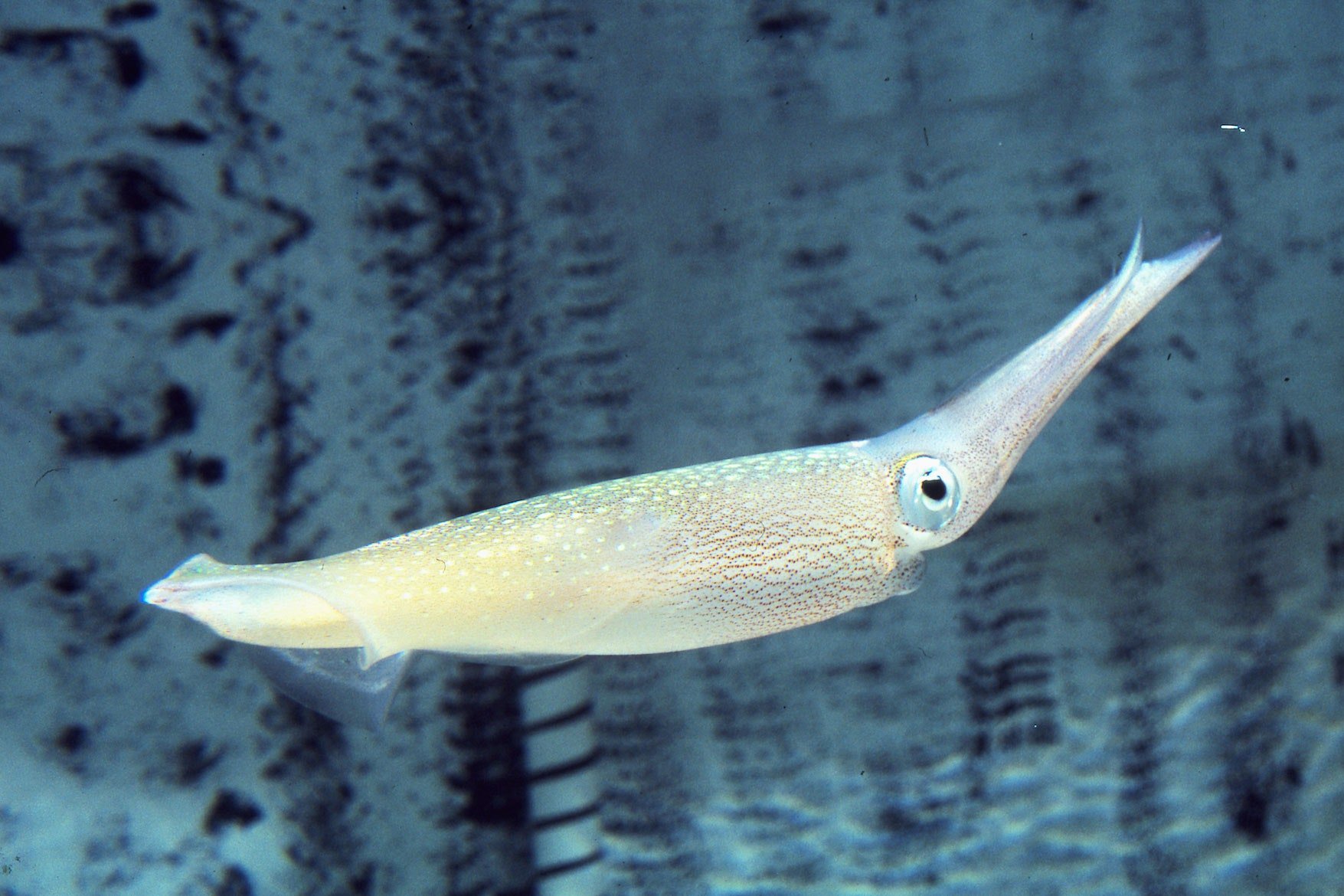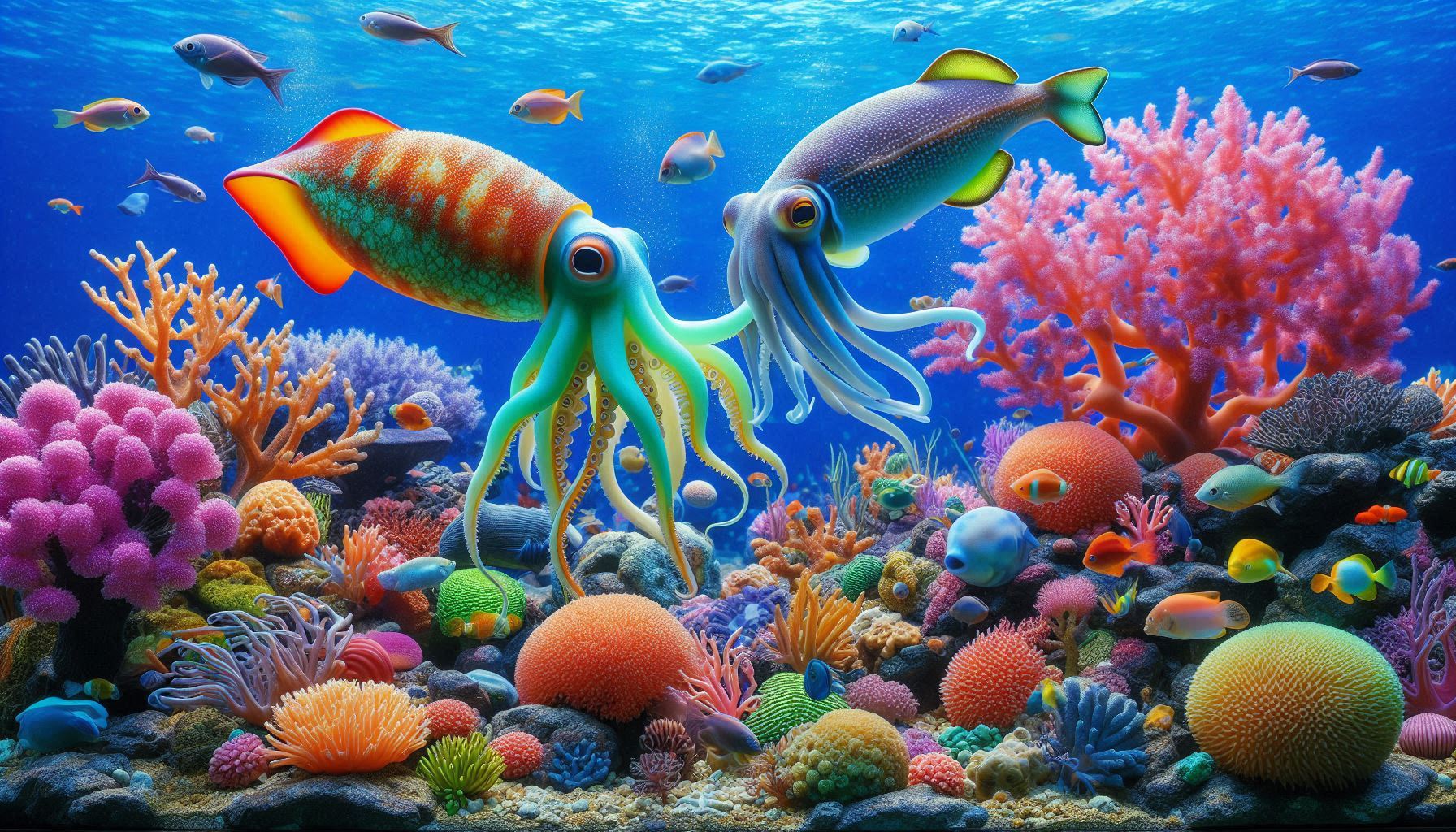When we looked into DNA, we found that squids are creatures that go against the central dogma, the basic principle of life. The genome of a squid is about 1.5 times that of a human, and the genes of an octopus are about 1.5 times that of a human. Squids and octopuses belong to the cephalopods, and are also called primates of the sea because of their high intelligence and the development of their nervous systems. They also have advanced mimicry abilities, and squids and octopuses are creatures that are very different from other creatures.
Squid that goes against the central dogma
The central dogma is a fundamental principle of all living organisms, from bacteria to humans, and refers to the flow of genetic information that goes from DNA → (transcription) → RNA → (editing) → RNA → (translation) → protein. RNA editing is usually only performed inside the nucleus, but only squids can do it outside the nucleus at high speed. This allows squids to translate proteins close to the parts of their body that need them.
Also, while RNA editing takes place in several hundred places in the human brain, it seems to take place in over 60,000 places in the squid brain. Since RNA editing does not seem to change DNA, perhaps it just rewrites the genetic information that is passed on to offspring without changing it. The details are still unclear, but it seems to show how flexible life is.

Octopus has a huge gene family
A group of similar genes derived from one gene is called a gene family, and octopuses have the second largest gene family of any animal, after the elephant’s olfactory receptors, which have 2,000 members. There are 1,800 members in the family of zinc fingers, which are involved in DNA → (transcription) → RNA, and it seems that the more members there are, the more types of proteins that are expressed.
Octopuses also seem to have a large number of transposons, which are genes that move on the genome, and elephants and octopuses seem to have a high proportion of them among animals. Transposons are genes that are involved in evolution, such as the destruction of genes and the acquisition of new genes, and a large number of them creates diversity in the genome, allowing it to adapt to drastic environmental changes. Octopuses must be quite flexible as a species.
Squid and octopus have highly accurate camera eyes
There are three main types of animal eyes: simple eyes, compound eyes, and camera eyes. Of these, camera eyes seem to have the most evolved eye structure, and are able to focus and have high resolution. Apart from vertebrates, including humans, only squids and octopuses seem to have camera eyes, which are superior in that they do not have the blind spots found in the retinas of vertebrates, can catch polarized light, and can keep their eyes horizontal in any position. Even if they are upside down or lying sideways, the eyes of squids and octopuses see the surroundings in the same way. Why do marine creatures, whose sense of smell is easily developed, have such highly developed eyes?
Squid and octopus with three hearts
Squids and octopuses are the only creatures with three hearts, one for the whole body and two for the gills, which allows them to swim at high speeds. Furthermore, octopuses have nine brains, and in addition to the brain in their head, they also have independent brains in their eight legs, which allows them to make complex leg movements. It seems like there must be some big difference in evolution between creatures with many hearts and brains.
Squid and octopus are amazing
Even if we just look at the words, the characteristics of squid and octopus are amazing: they deviate from the basic principles of life, have more genomes and genes than humans, freely edit RNA outside the nucleus, diversify their genomes with mobile genes, have very good camera eyes, and have many hearts and brains. There are still many things we don’t know about why they have these abilities, but it’s easy to understand why they are said to have come from space. Corn, which is also said to have come from space, seems to have many transposons, but is there any connection? Squid and octopus are amazing. The mysteries of life on Earth are amazing.


